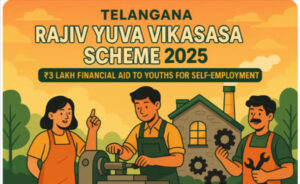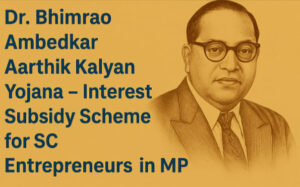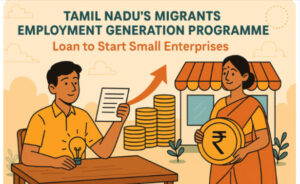The Self Employment Scheme, launched by the Goa State Scheduled Tribes Finance and Development Corporation Limited under the Department of Tribal Welfare, Government of Goa, is a transformative initiative aimed at promoting self-reliance and economic empowerment among members of the Scheduled Tribes (ST) community. This scheme provides financial assistance to individuals, associations, societies, partnerships, self-help groups (SHGs), and companies formed exclusively by ST members, enabling them to undertake various self-employment activities.
By offering loans up to ₹10,00,000 for individuals and ₹15,00,000 for groups or entities, the scheme ensures that beneficiaries have the resources they need to establish sustainable livelihoods. Let’s delve deeper into the details, benefits, eligibility criteria, and application process of this impactful program.
What is the Self Employment Scheme?
The Self Employment Scheme is designed to provide financial support to members of the Scheduled Tribes community in Goa who wish to pursue self-employment ventures. These ventures can range from agricultural and allied activities to manufacturing units, sales and service enterprises, and even vehicle purchases for business purposes.
The scheme emphasizes inclusivity by extending financial assistance not only to individuals but also to collective entities like SHGs, cooperatives, and companies, provided they are formed exclusively by ST members.
Key Benefits of the Scheme
- Financial Assistance;
- Up to ₹10,00,000 for individual applicants.
- Up to ₹15,00,000 for associations, societies, partnerships, SHGs, and companies.
- Margin Money Contribution;
- Beneficiaries are required to contribute 10% of the project cost as margin money. However, this condition can be relaxed by the Board of Directors (BOD) based on merit.
- Insurance Coverage;
- The beneficiary and their business activity must be insured against risks like fire, theft, cyclones, and other natural calamities.
- In case of any calamity, compensation received from the insurance company will be adjusted against the outstanding loan amount.
- Guarantor Requirement;
- Applicants must provide two guarantors, one of whom must be a government servant.
- Relaxed Eligibility in Deserving Cases;
- The BOD has the authority to relax eligibility criteria for deserving cases, ensuring greater flexibility and inclusivity.
Who is Eligible for the Scheme?
To avail the benefits of the Self Employment Scheme, applicants must meet the following criteria:
- Community :
- The applicant must belong to the Scheduled Tribes (ST) community.
- Income Limit;
- The annual family income of the applicant should not exceed ₹1,00,000.
- Age;
- The applicant’s age should not exceed 55 years.
- Purpose;
- Financial assistance is provided only for self-employment activities approved by the Corporation.
- Entities;
- Associations, societies, partnerships, SHGs, and companies formed exclusively by ST members are also eligible.
- Guarantors;
- Two guarantors with sound financial status are required, one of whom must be a government servant.
Note: The eligibility criteria can be relaxed in deserving cases by the decision of the Board of Directors (BOD).
How to Apply – Offline Process
Applicants can apply for the Self Employment Scheme through an offline process. Here’s a step-by-step guide;
- Visit the Authority :
- Visit the Department of Tribal Welfare, Govt.. of Goa, located at Shram Shakti Bhavan, 5th Floor, Patto, Panaji-Goa, – 403 001.
- Obtain the Application Form :
- Download and print the proforma of the application form from the official website or request a hard copy from the concerned authority.
- Fill the Form :
- Fill in all mandatory fields, paste a signed passport-sized photograph, and attach copies of all required documents (self-attested if necessary).
- Submit the Application :
- Submit the duly filled and signed application form along with the supporting documents to the concerned authority.
Documents Required
The documents required vary depending on the type of activity for which the loan is sought. Below is a general list of documents:
- Common Documents :
- ST Certificate (self-attested).
- Two passport-sized photographs.
- Annual family income certificate (below ₹1,00,000) issued by a competent authority.
- Copy of ration card (self-attested).
- Age proof.
- Aadhar Card (self-attested).
- Self-declaration affidavit in the prescribed format.
- Activity-Specific Documents :
- For agriculture – Title documents, cultivation proposal, cost estimates, etc.
- For allied agriculture activities – Proof of land availability, NOC from Panchayat/Municipality, cost estimates, etc.
- For manufacturing/processing units – Viability report, infrastructure details, machinery quotations, etc.
- For vehicle purchase – Project report, quotation, driving license, engagement letter (if applicable).
- Guarantor Documents :
- Salary certificate/latest payment slip of the surety.
- Affidavit of surety (on ₹50 stamp paper, duly notarized) in the prescribed form, along with a photo and ID proof of the surety.
Frequently Asked Questions (FAQs)
Q1. What is the definition of “Family” in the context of this scheme?
A family includes the applicant, their spouse, and dependent children.
Q2. How is insurance integrated into this scheme?
The beneficiary and their business activity must be insured against risks like fire, theft, and natural calamities. Compensation from the insurance company will be adjusted against the loan outstanding.
Q3. What is the significance of the 10% margin money requirement?
The 10% margin money ensures that the beneficiary has a stake in the project, fostering responsibility and accountability.
Q4. Can an applicant with a family income slightly above ₹1,00,000 apply?
Eligibility criteria can be relaxed in deserving cases by the decision of the BOD.
Q5. Is there a specific repayment period for the loan?
The repayment period is decided by the Corporation based on the nature of the project and its viability.
Q6. What happens if a borrower defaults on their loan installments?
Defaulters may face legal action, and the guarantors will be held accountable for repaying the outstanding amount.
Q7. Can an individual apply for financial support for purposes other than self-employment?
No, the scheme is exclusively for self-employment activities.
Why Choose the Self-Employment Scheme?
The Self Employment Scheme is a lifeline for members of the Scheduled Tribes community in Goa, empowering them to break free from economic constraints and achieve self-reliance. By providing financial assistance, insurance coverage, and flexible eligibility criteria, the scheme ensures that no deserving candidate is left behind.
If you’re an ST member looking to start a business or undertake self-employment activities, this scheme offers the perfect opportunity to transform your aspirations into reality. Apply today and take the first step toward a brighter future!



